These Fordham Law alumni eventually made their way back to the legal classroom. Here’s a look at some of the issues and stories you may hear them talk about there. Plus, we asked all of them to grade themselves on an aspect of their pedagogy—no cheating!
D. Benjamin Barros ’96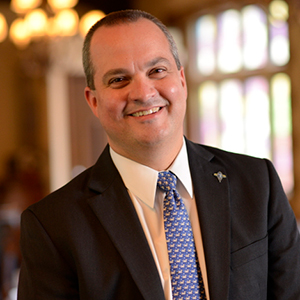
Dean and Professor of Law, University of Toledo School of Law
Barros is the founding editor of the Journal of Law, Property, and Society, and in 2015, co-authored a casebook on property law.
The Value of Risk
Risk allocation is at the heart of what lawyers do, but it’s not talked about explicitly in law school.
Risk is not necessarily a bad thing. A lawyer’s role is not just to help their client avoid risk but also to help
mitigate risk because sometimes taking a risk is a good thing that brings opportunity. A sophisticated client might seek out risk and find a way to mitigate it to profit more from the transaction. For example, in real estate, an engineer may be more willing to take a risk on an older property because they have a better grasp on potential structural problems than someone without that knowledge.
That gets right to the heart of the lawyer’s role. The lawyer needs to be an expert on the risks in any transaction and be able to clearly explain them to the client so they can be mitigated. At the end of the day, the lawyer’s job is to advise on risk and risk mitigation. It’s the client’s role to decide whether to take the risk or not.
Sometimes lawyers can be naysayers: “That’s too risky.” Lawyers should be problem solvers, not naysayers. If you understand risk and can help clients solve problems, they’re going to be a lot happier to work with you again.
First Year of Teaching: C
I explained a Rule Against Perpetuities problem to a student and realized I’d gotten it wrong.
It probably took my third time teaching property before I really understood the rule. I’d give
myself a lower grade for that, but the rule is really hard to apply.
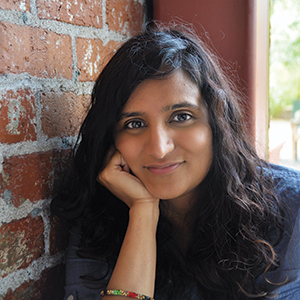 Gowri Krishna ’06
Gowri Krishna ’06
Associate Professor of Law, New York Law School
Krishna leads a clinic for students in counseling New York City nonprofit and community-based organizations, worker cooperatives, social ventures, and neighborhood-based entrepreneurs on business matters.
Lawyering in a Cooperative Economy
Connecting student clinical work to real-world societal problems: A
When my students represented a nonprofit day care in NYC public housing, I pressed them to look past the policies they were crafting on paper and examine the larger issues of poverty and their responsibilities as lawyers.
Gerald Dickinson ’13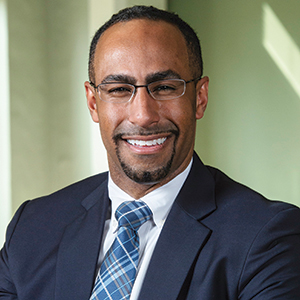
Assistant Professor of Law, University of Pittsburgh Law School
Editorials that Dickinson has written about President Trump’s border wall in The Washington Post and The Hill have made him an in-demand expert on land acquisition issues along the U.S.-Mexico border for the U.S. Senate’s Homeland Security and Governmental Affairs Committee.
Acquiring Land for Trump’s Border Wall
In January 2017, President Trump signed Executive Order 13767, mandating construction of an international border wall along the southwest border between the United States and Mexico. That raised a lot of eyebrows about how the federal government is going to be able to achieve such a massive project.
If the government is going to build a wall, how will it acquire the land? A significant portion of that land is not owned by the federal government but by private owners, state government, and Native Americans. The government could acquire the land through voluntary negotiation with the owners, but most people are not willing to do that unless the right price is there, and the process would involve hundreds of thousands of negotiations with separate owners. A second way for the government to acquire the land is through its power of eminent domain—to take land so long as there is justification.
The Bush and Obama administrations built stretches of fences along the border, calling them protection for the security mechanisms they built there. The difference with Trump’s approach is he wants a contiguous “wall” that would stretch from California to Texas, a daunting task indeed. So far he hasn’t been able to get enough support for funding from enough members of either party, but if he does, he’ll have to sort out how best to get the land for this undertaking.
First Day of Clerkship: B+
During my interview, Chief Judge Theodore A. McKee, a Cleveland Browns fan, threw me off balance by giving me a hard time about rooting for the Pittsburgh Steelers. But once I started, I got him back by decorating my office with a Steelers “terrible towel.”
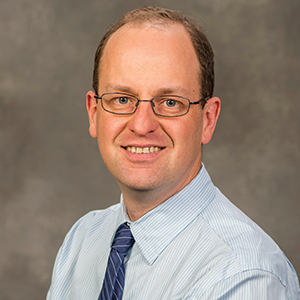 George Mocsary ’09
George Mocsary ’09
Associate Professor of Law and Director of Faculty Development, Southern Illinois University School of Law
Mocsary co-authored Firearms Law and the Second Amendment: Regulation, Rights and Policy (with Fordham Law Professor Nicholas Johnson as well as David B. Kopel and Michael P. O’Shea) now in its second edition.
What’s Next for the Second Amendment
Second Amendment law is where First Amendment law was in the 1940s. Although scholarship about the Second Amendment started in earnest in the 1970s, it was District of Columbia v. Heller in 2008 and McDonald v. City of Chicago in 2010 that set off this field’s rapid expansion. Heller held that the Second Amendment protects an individual’s right to possess a firearm for self-defense from federal interference, and McDonald incorporated the right against the states.
Those decisions clearly protect in-home handgun possession, but the next big question is whether the Supreme Court will hear a case asserting the right to self-defense via firearms in public. In 42 states, anyone who passes a background check and takes a safety class can get a permit to carry firearms outside the home. That number may be a bit higher if you include open-carry laws in a few other states. Some of those laws have been challenged and upheld, but the Supreme Court hasn’t tackled them yet. That would be the next big thing in Second Amendment law—when the Supreme Court decides on whether the right to bear arms means bearing arms outside the home.
Leading extracurricular activities for students: A+
I have a shelf of cards and other thank-yous from students for helping them outside the classroom. That’s the kind of thing that keeps professors going.
Danielle Citron ’94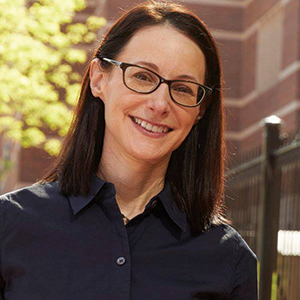
Morton and Sophia Macht Professor of Law, University of Maryland Carey School of Law
Visiting Professor of Law, Fordham Law School
Citron teaches, writes, and comments extensively in the media about information privacy, free expression, and civil rights. She wrote the book Hate Crimes in Cyberspace as well as an article about sexual privacy that will be published in 2019 in the Yale Law Journal. She will be joining the faculty of Boston University School of Law as a professor of law in fall 2019.
Protecting Online Sexual Privacy
The challenge of being and becoming who you want to be requires you to set boundaries around yourself, particularly around your sexual identity. But the online tools we rely on for networking can deprive women and minorities of those opportunities. When it comes to sexual privacy, the abuse of these tools not only takes away boundaries but can also destroy lives. When someone posts a nude photo, a sex video, or a private conversation recorded by Alexa, those things become hypervisible. They can make women unemployable, un-dateable, and unable to engage in civic affairs. Every search will show their nude photos, the threats they have received, or other objectionable content. Even a sympathetic potential employer or other acquaintance who understands that the woman is a victim may simply find it easier to go with someone else.
We need to think of cyberstalking, “revenge porn,” and all these other facets of Internet abuse not as separate pieces but rather as a unitary problem of sexual privacy and tackle it in a comprehensive way. There has been progress. When I started working with lawmakers and companies about law and policy in this area, only two states had laws on the books criminalizing nonconsensual porn. Now there are 40. That’s tremendous improvement—and a promising sign that we can address this issue on the federal level in the future.
Helping Cyber Victims Beyond Raising Awareness: B-
As an academic, I can’t legally represent these victims, but my work has helped inform those who can. I hope it will inspire more to do the same.
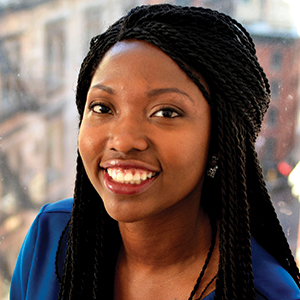 I. India Thusi ’07
I. India Thusi ’07
Assistant Professor of Law, California Western School of Law
Thusi’s latest article, “Harm, Sex, and Consequences,” appears in the 2018 Utah Law Review.
Rethinking Criminalization
We’re at a moment in history when this country is incarcerating far too many people. Clearly, we need to rethink criminalization. Our dominant theory of criminalization, retributivism, focuses too much on making judgments about someone’s blameworthiness in the abstract. The trouble is that those judgments are affected by our backgrounds and biases and often lead to discriminatory outcomes. The focus on the abstract moral consequences of criminalization blinds us to the obvious direct consequences and harms that flow from criminalization itself. We should instead adopt an approach to criminalization that examines the actual harms of both criminalization and the conduct that we intend to criminalize. This approach would allow us to be more cognizant of the fact that criminalizing people can do more harm to them and their families than they may have done to anyone else. Criminalization can create a whole host of collateral consequences that we never intended.
For instance, some people advocate that we criminalize sex work to protect sex workers from human trafficking, but that forces the workers underground, placing them in other dangerous situations as they take riskier clients. In New Zealand, decriminalizing sex work has decreased violence and empowered sex workers to speak out.
Rather than bringing in our own judgments and weighing the morality of criminal acts, we should focus on what’s happening to the people involved to ensure that our criminal legal system acts in a more rational way. It’s an approach I have been describing as “distributive consequentialism,” focusing on the consequences and conduct of criminals and how the harm they have done is distributed through the affected community.
First Day of Clerkship: B+
I forgot to bring a pen to my first meeting with the judge and had to ask for one. But at least I had the notepad.
Aya Fujimura-Fanselow ’04
Senior Lecturing Fellow and Supervising Attorney, Duke Law
Fujimura-Fanselow, the senior lecturing fellow and supervising attorney of Duke Law’s International Human Rights Clinic, has written on and advocated for human rights, including on the topics of reproductive rights, transitional justice, economic, social, and cultural rights, and pretrial detention.
Shedding Light on Torture Flights
In late 2017, a bipartisan citizens’ commission held public hearings to investigate and seek accountability for its state’s role in the CIA’s post-9/11 rendition, detention, and interrogation program.
This didn’t happen in some country recovering from the ravages of civil war or dictatorship but right here in the United States—in North Carolina. Between September 2001 and March 2004, a company called Aero Contractors, based in North Carolina, reportedly conducted more than 80 percent of the U.S. government’s identified renditions. The North Carolina Commission of Inquiry on Torture (NCCIT) examined the state’s role in the operation, including hearing testimony from victims and their families.
Commissions like these are novel in the United States, but they can be an effective tool for bringing issues to light, particularly when the government thwarts court cases on the basis of “state secrets.” This alternative to litigation also provides the opportunity for victims and witnesses to speak on their own terms without being limited or restricted by courtroom procedures. The international human rights clinic students conducted research and legal analysis to support the commission’s hearings, and subsequently students engaged in additional research and analysis that contributed to the NCCIT’s final September 2017 report. This clinic project has provided students with the opportunity to engage in how to use an international human rights framework to seek accountability in the United States.
First Time Leading Students on a Human Rights Research Trip: B+
As a Crowley Fellow at the Leitner Center for International Law and Justice, when a student had a particularly strong emotional reaction after interviewing a detainee at a Bolivian prison, I asked myself whether I had adequately prepared the students for the intense emotions that could be evoked by this experience. While managing our reactions is crucial, I also believe that as we are human rights advocates, these responses are important and ensure that we never lose sight of the fact that the human rights violations that we witness and work to end are indeed horrifying.
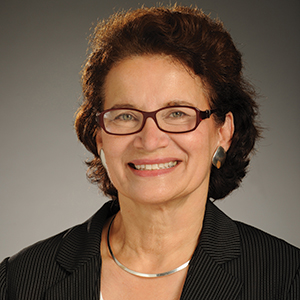 Helen Bender ’78
Helen Bender ’78
Associate Professor of Law, Fordham Law School
Bender has taught contracts, commercial transactions, remedies, and the legal process at Fordham since 1979. She co-authored the seventh edition of Cases and Problems on Contracts earlier this year.
Contractual Obligations
Two recent developments in contract law have widespread implications. The first affects nearly everyone. If you have a smartphone, every other day you are signing off on terms-of-service contracts you never read. You are not expected to. Yet the courts treat these contracts as though they are real, even though they give consumers no real choices. The worst thing about them is their arbitration waiver provisions, which exclude any kind of class-action arbitration. How else are individual consumers going to bring claims against a company if they can’t join with others? They are held back because the courts—all the way up to the Supreme Court—tell them that they agreed to these terms and conditions on some little Android phone.
Another development in contract law that is just as concerning is the proliferation of noncompete covenants in employment contracts. When parties sign up for employment, they often sign covenants not to compete, meaning they can’t leave and go work for a similar company. In one unbelievable case, a sandwich maker for Jimmy John’s Gourmet Sandwiches couldn’t go to another sandwich maker. Employees in that situation would have to stay at the job or switch to a different industry and get new training, essentially keeping them stuck in a form of servitude. The Obama administration considered this a major depressive force on the economy, because if people can’t change jobs within their line of work, they can’t move up, get better salaries, or innovate. Unsurprisingly, the current administration doesn’t share that concern.
First Day as a Summer Associate: B
I showed up in a brand-new suit but forgot to take the tags off. A very kind partner noticed and let me know.
Eric Lane ’70
Eric J. Schmertz Distinguished Professor of Public Law and Public Service, Maurice A. Deane School of Law, Hofstra University
Lane is co-author of The Genius of America: How the Constitution Saved Our Country and Why It Can Again as well as two law school texts and numerous articles on the legal framework for governmental decision making. He is also the co-author of the Brennan Center for Justice’s Report Card on New York’s Civic Literacy.
Civic Education
Civic literacy is a big problem in our country. James Madison, the Father of the Constitution, warned that “a people who mean to be their own Governors, must arm themselves with the power which knowledge gives.” As study after study shows, Americans are failing this test. Few know much about the Constitution or the principles intended to govern their institutions or governing processes. At least law students are required to take a Constitutional Law course.
It is particularly important to understand that the intent of the framers was to create a complicated system of checks and balances to frustrate the passions of the many and diverse factions that demarked and still demark America’s political landscape. Alexander Hamilton described it as a system in which “ambition must be made to counteract ambition.”
Still, these defensive mechanisms were not enough. There was still a need to get things done. For this monumental task, the framers thought education was the path. In fact, it was this commitment to civic literacy that motivated the creation of public education in America.
Through education, the framers hoped, as George Washington put it, Americans would learn “to make those mutual concessions which are requisite to the general prosperity”—and thusly forge their new democracy. Understanding sacrifice and compromise for the sake of national progress were among the most important educational goals.
Our commitment to civic education, and with it to our democracy, has been unwinding for some time now. In our schools, civics of some sort or another is on its last breath. Politics is more tribal than ever. According to a recent Pew study, the percentage of Americans who now say it is important or absolutely important to live in a democratic country has dropped from 91 percent among those born in the 1930s to 57 percent among those born in the 1980s.
Perhaps this unwinding is to be expected. Most of the framers doubted that the Republic could last more than 50 years. Democracies, according to John Adams, all possessed the seeds of their own death. But those seeds need not grow. Our slide is not inevitable. John Kennedy once said that “our problems are man-made; therefore, they may be solved by man.” But to solve them we must be willing to address them. Time will tell if we do.
First Day of Teaching: B
I was hired to teach Public International Law and Conflicts of Law, two subjects about which I knew nothing, but with some hard work, I still knew a bit more than the students did.
 Constantine “Gus” Katsoris ’57
Constantine “Gus” Katsoris ’57
Wilkinson Professor of Law, Fordham Law School
Katsoris graduated as valedictorian in his law school class and has been teaching at Fordham Law for 55 years on such subjects as federal taxation, estate planning, wills, and accounting for lawyers.
Accounting for Change
There are presently several challenging issues facing the accounting profession in its quest to report accurate financial statements. First and foremost the profession must ensure the independence of those who audit and report on the clients’ operations—particularly in foreign jurisdictions—in order to maintain the public’s trust.
Moreover, there is the issue of reporting the liability for leases directly on the balance sheet, raising the problem of valuing the asset and liability of such leases, which include variable, unpredictable options contained in said leases.
There is also the most important issue of maintaining the distinction between “ordinary earnings” and “extraordinary earnings,” so important to investors in judging the sustainability of future earnings.
Finally, accounting is more than debits and credits. In short, the health of the world’s economy depends upon the public’s confidence in the integrity of the financial statements the accounting profession produces. Accordingly, I get particular pleasure in teaching how these reports are produced and the analysis thereof in predicting the future.
Teaching Accounting for Lawyers for 54 years: A-
I would like to give myself an A and not an A-, but that would indicate I am satisfied with my course; I feel there is always room for improvement.
Gail Hollister ’70
Murray Professor of Law Emerita, Fordham Law School
Hollister taught torts, negligence, malpractice, legal writing, and legal practice at Fordham Law for 40 years. She also served as associate dean for administration and the School’s first assistant dean of students.
Law Students Often Overly Anxious
Soon after I started teaching it became clear to me that first-year students in particular can be very stressed out and unsure of themselves. As they’d get closer to exam time, they’d convince themselves that if they didn’t get an A in everything, their careers would be over before they even began, a mindset that is not conducive to a balanced approach to law school.
So, on the last day of class, I’d always spend some time taking a step back and putting law school and grades in perspective. I’d remind my students that first-year classes tend to emphasize certain skills a lawyer needs, but that those are not the only skills that are important. Other vital skills will be taught later, especially in clinical classes, and students who, for example, are not legal analysis stars during 1L may excel in other essential legal skills. Further, some students catch on more quickly than others in areas such as legal analysis, but that’s no reason to get discouraged—there is plenty of time to catch up.
Above all else I would tell them that, while their grades were valuable, they weren’t as important as upper-year students tell them; their careers would not be over if they didn’t get As. Students generally enjoyed a story about Supreme Court Justice William O. Douglas, who, it is said, got a C in Constitutional Law but turned out to be a pretty successful constitutional lawyer.
Going Back to Teaching the Basics in Semi-Retirement: A
I suspect most people below the age of 25 express themselves better orally than they do in writing, probably because they have had less experience writing. Fordham has now given me the opportunity to work with a number of students each semester, reviewing some of the basics of legal analysis, and helping them see how to get that analysis across on paper.
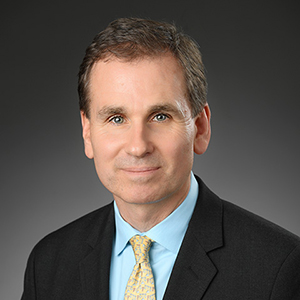 Michael W. Martin ’92
Michael W. Martin ’92
Director of Clinical Programs, Clinical Professor of Law
Martin supervises the Federal Litigation Clinic and Seminar and teaches International Human Rights and International Criminal Law as part of Fordham’s Belfast-Dublin Summer Program.
Take Control of the Narrative
When it comes to advocacy, the power of narrative cannot be underestimated. Clearly, President Trump understands this. He gets narratives out there that his listeners continue to justify even when presented with contrary facts. Jurors are just as susceptible to this phenomenon of selective distortion. They’ll hear the facts in a trial, but if they have already embraced a narrative (more often, the prosecutor’s narrative, as it presents first), they will dismiss or distort facts if the facts run counter to the story that resonates with them. Despite contrary evidence, they are prone to continue believing the tale.
Police have mastered the art of creating narrative. In public statements about the arrest, often reaffirmed by perp walks—reporters are alerted as to when suspects will be leaving the precinct (often hiding their faces) as they are escorted to police cars or holding cells—the police are sending a powerful message that the suspects are guilty. Take the Central Park Five. From the get-go, the police set the narrative that these kids were moving in “packs” and “wilding” on that terrible evening in April 1989, and they confessed to the crime. It did not take much for the media and public to think of those five Latino and black youths as being out-of-control “wild animals” and self-confessed perpetrators. Of course, none of the five’s DNA was found at the scene, the police’s narrative as to where the youths were in the park did not fit well within its own timeline of the crime itself, and ultimately someone else—whose DNA matched the perpetrator’s—eventually confessed to the crime. Interestingly, in the U.K., perp walks are not allowed because of their suggestive power. Indeed, Keith Richards of the Rolling Stones won a defamation suit against the BBC for filming a police search of his home.
Narratives are generally formed around undisputed facts, and then rely on the listeners’ life experiences to fill in blanks—that is, resolve the undisputed facts. As a lawyer, the best way to change a dominant narrative is to search for the undisputed facts that run counter to the dominant narrative, so that the fact finder is confronted with a dilemma: if this fact is true, then the dominant narrative cannot be true. Having made it clear to the audience that these facts don’t support the false narrative they have been given, the lawyer must then show why the alternative narrative (based again on undisputed facts) best fits within the life experience of the fact finder—that is, the counter-narrative makes a lot more sense, and here is why.
Accepting Career Advice: A
I was once told to look for a lawyer who was living the type of personal and professional life that I could envision myself living happily. As a 3L at Fordham Law, I was fortunate to take a clinic with Professor Ian Weinstein, and I marveled at his satisfaction with the teaching, mentoring, and public service aspects of his career choice. I am happy to say that Ian is my next-door office neighbor, teaching partner, and friend.




